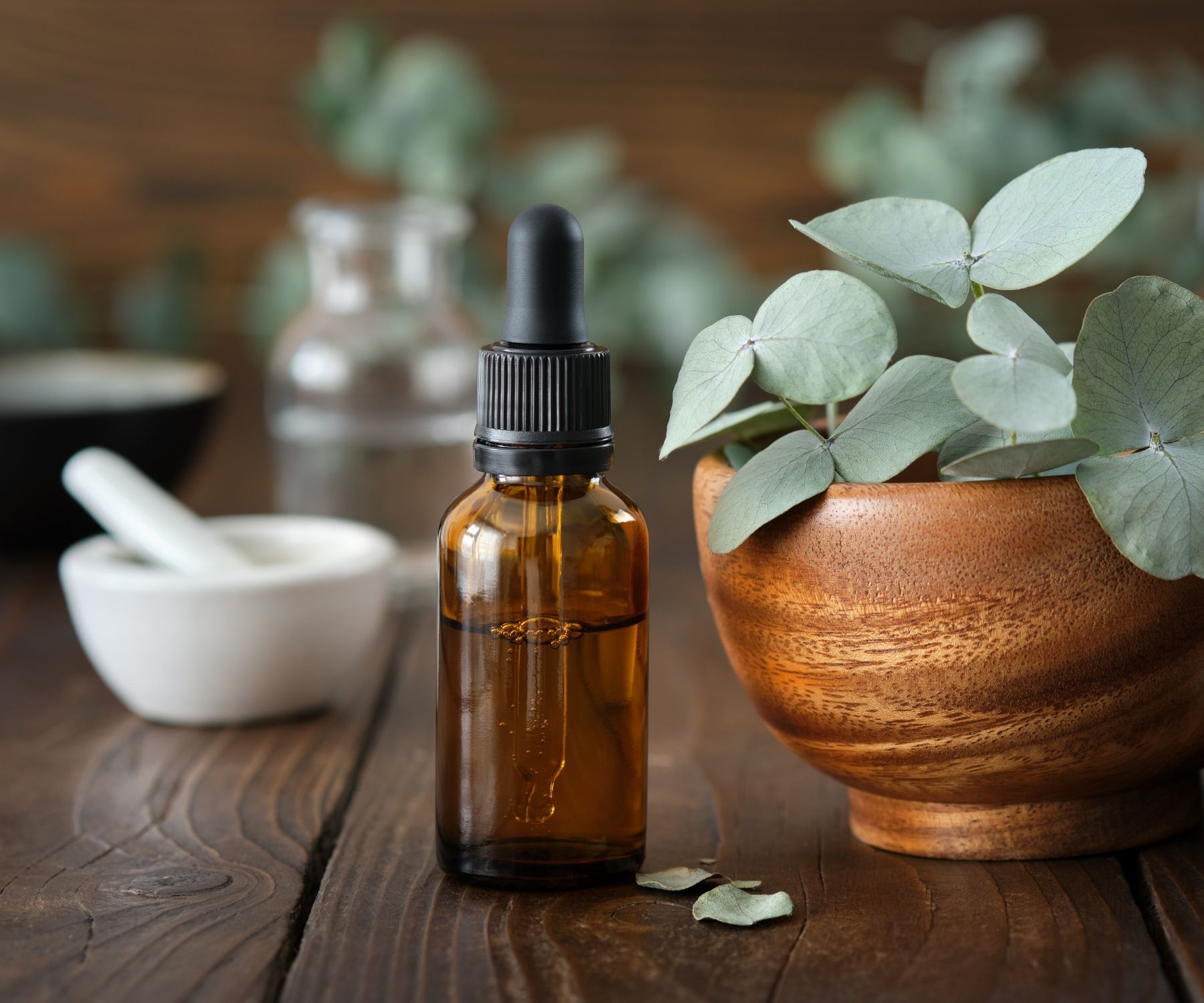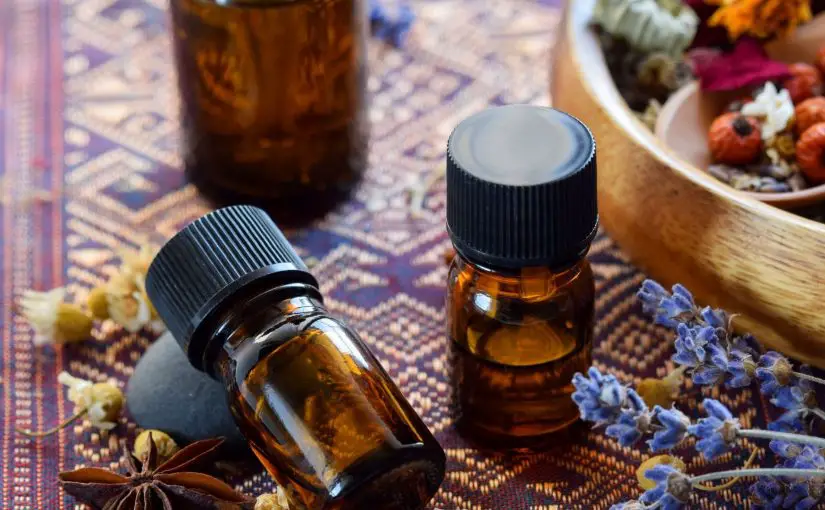Breathing difficulties are becoming a more common occurrence in the modern world. It’s hard to deny that the worsening condition of our planet – and the continued degradation of our air – is to blame for this.
The reality of the situation is that there has never been more air pollution than there is right now. It’s reached the point people in countries such as China and Japan are unable to leave their homes without protective masks.
The increase in pollution has left more contaminants and pollutants in the air that make respiratory conditions worse. Anyone who is predisposed to such respiratory ailments are at a greater risk when exposed to the constant pollution they have to live with.
Essential oils have been shown to offer therapeutic benefits for a range of medical conditions. Some essential oils have even been shown to help with breathing problems.
Here are some of the best essential oils for breathing that you should keep handy if you have breathing problems.
Table of Contents
Essential Oils for Breathing Issues
-
Eucalyptus Oil
Eucalyptus oil is one of the very best essential oils for breathing problems. The reason that it is so effective is that it contains anti-inflammatory agents. These agents help to minimize the symptoms of inflammatory respiratory conditions including bronchitis. Another reason that the essential oil is so effective at reducing the severity and symptoms of breathing problems is that it also has antimicrobial properties.
These properties allow to protect users from a range of bacteria and viruses. Bacteria and viruses can cause severe respiratory issues including asthma, bronchitis, and obstructive pulmonary disease if they aren’t treated. As well as all of this, eucalyptus oil has been shown to stimulate cold receptors in the nose and improve airflow through the nose.
-
Peppermint Oil
Peppermint oil has also been shown to help with breathing difficulties. Studies have shown inhaling peppermint oil can help to reduce the symptoms of an asthma attack. The reason for this is likely because peppermint oil has an anti-inflammatory response on the bronchial smooth muscle, which flares up during asthma attacks.
As well as being effective because of these anti-inflammatory properties, peppermint oil has shown to help reduce the symptoms of the common cold. It can do this thanks to the antimicrobial and antibacterial properties it possesses. -
Lavender Oil
Lavender oil essential oil has been used for years to treat a range of ailments. In particular, it has proven effective at reducing the inflammation that can cause respiratory conditions. As well as helping to directly reduce inflammation, lavender oil has been shown to reduce anxiety and promote calmness, which are often connected to the breathing problems people have.
As anxiety and stress are able to trigger and/or exacerbate breathing problems for the people that have them, lavender oil is able to directly impact those issues and prevent them from becoming more serious breathing issues.
-
Clove Oil
Clove oil has been shown to have some healthy benefits for people that suffer from respiratory conditions. While clove oil is primarily used in the kitchen as part of cooking, it has been shown to help alleviate the symptoms of asthma for sufferers.
Clove oil helps to tackle the symptoms associated with an asthma attack, clearing out the breathing pathway and helping asthma sufferers to breathe properly. This is thanks to cloves being an effective anti-inflammatory agent. Inhaling clove oil can help people who suffer from asthma symptoms. -
Rosemary Oil
Rosemary oil is another great choice for people who need some assistance with their respiratory problems. Rosemary oil helps boost the respiratory system because it is works as an anti-inflammatory to clear out the inflammation that can occur in the trachea. Inhaling rosemary oil allows you to soothe the muscles that make it possible to breathe. This frees up your airway and allows you to breathe without a problem.
-
Ginger Oil
The final entry in our list of essential oils that are great for breathing problems is ginger oil. This oil has been shown to help with the symptoms of asthma in particular. It is an ideal addition to the lives of any asthma sufferer. It helps to reduce airway contractions, which make breathing easier in general. This is particularly true when dealing with something that constricts your airway, such as an asthma attack. As well as helping to open up your airways, ginger has been shown to be effective at decreasing the symptoms and severity of the common cold. Give it a try the next time you get the sniffles.
| Essential Oil | Key Properties | Benefits for Respiratory Issues |
|---|---|---|
| Eucalyptus | Anti-inflammatory, Antimicrobial | Reduces symptoms of bronchitis, improves airflow |
| Peppermint | Anti-inflammatory | Helps reduce asthma attack symptoms, cold relief |
| Lavender | Reduces inflammation, Promotes calmness | Alleviates anxiety-related breathing problems |
 5 Essential Oil Recipes for Breathing Difficulties
5 Essential Oil Recipes for Breathing Difficulties
-
Essential Oil Facial Steaming
-
You need:
- A pot with 3 – 4 cups of water
- 2 drops of tea tree oil
- 2 drops of eucalyptus oil
- A heat source
- A towel
-
What to do:
- Boil the water until it steams up 2. Remove the water from the heat and place it on a placemat on a table 3. Sit in front of the pot, with your face positioned so the steam can reach it 4. Use the towel to make a tent over your head and the pot and sit in the steam for around 15 minutes
-
-
Liquid Vapor Rub Blend
-
You need:
- 10 drops of rosemary
- 10 drops of lemon
- 10 drops of eucalyptus
- 5 drops of lime
- Fractionated coconut oil
- A 10ml roll-on bottle
-
What to do:
- Add the ingredients to the bottle and shake it well to combine them
- Roll the mixture onto your chest, shoulder, temples, neck, and back
-
-
Breathe Easy Shower Bombs
-
You need:
- ½ cup of cornstarch
- ½ cup of baking soda
- 7 drops of peppermint
- 5 drops of lavender
- 7 drops of thyme
- 10 drops of eucalyptus
- An ice cube trap
- A squirt bottle filled with water
-
What to do:
- Place the baking soda, corn starch, and essential oils together in a bowl
- Squirt water over the powder mixture and make little molds using your hands. Don’t add too much water. You only need enough to make it possible to mold the ingredients together without them disintegrating
- Stuff the molds into the cubes of the ice cube tray and place in the refrigerator for a few hours
- Pop them out of the tray when they harden and store them in a mason jar
- Use the shower bombs by putting them on the shower floor, by the drain, before you use the shower. The heat and pressure from the shower water breaks the bomb down, letting out the aroma that will then open up your airway so you breathe easier
-
-
Clear Congestion Diffuser Blend
-
What you need:
- 1 drop of marjoram
- 3 drops of peppermint
- 2 drops of eucalyptus
- 2 drops of tea tree
- 1 drop of lemon
- Non-plastic cold-air diffuser
-
What to do:
- Add all the oils to the diffuser, according to the manufacturer’s instructions
-
-
Respiratory Support Diffuser Blend Recipe
-
What you need:
- 2 drops of pine
- 2 drops of rosemary
- 1 drop of lemon
- 2 drops of marjoram
- Non-plastic cold-air diffuser
-
What to do:
- Place the oils in the purifier according to manufacturer’s instructions to purify and strengthen respiratory system and eliminate congestion.
-
Essential Oils for Better Breathing and Breathing Problems
Essential oils can offer some great benefits to those who have difficulty breathing, no matter the cause of the problem. While more research needs to be done overall, there are several studies that have shown essential oils can help to minimize symptoms associated with respiratory problems. The main reason for their effectiveness in this field is because they are effective at decreasing inflammation, which is a common factor in attacks. Some have also been shown to help prevent colds and other problems that can lead to nasal congestion and infections.
 Scented Pathways: Journeying Beyond Lavender and Peppermint
Scented Pathways: Journeying Beyond Lavender and Peppermint
Discovering Hidden Gems: Lesser-Known Essential Oils for Respiratory Health and Well-Being
For those who have ventured into the realm of aromatherapy and experienced the benefits of popular essential oils, there lies a treasure trove of lesser-known gems waiting to be discovered.
These not-as-prominent essential oils offer unique properties and benefits that can enrich your wellness journey, particularly for enhancing respiratory health and overall well-being. Whether you’re seeking to expand your aromatherapy collection or searching for alternative solutions to common health concerns, exploring these lesser-known oils can open up new avenues of natural healing and comfort.
Below, we delve into ten such essential oils, each with its own distinctive qualities and uses, promising to broaden your horizons and introduce you to the wider, aromatic world of plant-based remedies.
| Essential Oil | Key Benefits |
|---|---|
| Hyssop Oil | Known for its expectorant properties, helping to clear respiratory congestion. Also has antiseptic and anti-inflammatory qualities. |
| Myrtle Oil | Offers a gentle expectorant action, suitable for easing coughs and respiratory infections. Myrtle is also known for its soothing effects on the respiratory system. |
| Ravensara Oil | Often used in aromatherapy for its antiviral and antimicrobial properties, making it beneficial for respiratory infections. |
| Bay Laurel Oil | Has expectorant and antimicrobial properties, useful in treating respiratory infections. Its uplifting scent can also help reduce fatigue and stress. |
| Plai Oil | Native to Southeast Asia, known for its potent anti-inflammatory and analgesic properties, making it useful for headaches and muscle pain, as well as respiratory relief. |
| Niaouli Oil | Similar to Tea Tree oil, Niaouli offers powerful antibacterial and antiviral qualities, making it effective in combating respiratory ailments and boosting the immune system. |
| Manuka Oil | Known for its powerful antibacterial properties, more potent than Tea Tree oil in some cases. It’s beneficial for skin conditions, but also has respiratory benefits in clearing congestion and fighting infections. |
| Cajeput Oil | Similar to Eucalyptus and Tea Tree oils, Cajeput is effective in clearing nasal and respiratory congestion due to its expectorant properties. Also has antiseptic and analgesic effects. |
| Copaiba Oil | Derived from the resin of the copaiba tree, this oil is noted for its anti-inflammatory properties, making it beneficial for pain relief and respiratory conditions. |
| Inula Oil | Known for its ability to dissolve mucus and ease respiratory congestion. It’s particularly useful for chronic respiratory conditions and is known for its expectorant properties. |
These essential oils, while not as mainstream, offer a range of therapeutic benefits that can complement the more well-known oils, especially for those looking to deepen their aromatherapy practice or seeking alternative solutions for respiratory health.


 Scented Pathways: Journeying Beyond Lavender and Peppermint
Scented Pathways: Journeying Beyond Lavender and Peppermint





